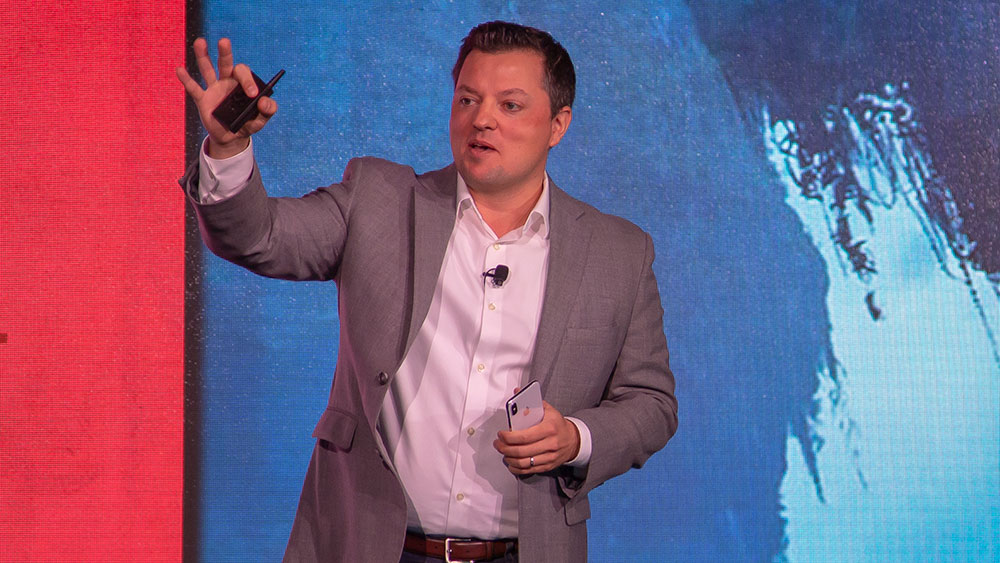
Ryan Jenkins, millennial and Gen Z expert, says Gen Z workers prefer face-to-face communication at work. (Courtesy Ryan Jenkins)
Generation Z has arrived — and it’s causing shifts in the workplace. It is estimated members of Generation Z, classified as those born between 1996 and 2010, will make up one-third of the workforce by 2020. This age group is digitally savvy and used to utilizing technology in almost every facet of their lives. Their workplace communication preferences, however, are a different story.
According to a live poll conducted during a presentation by Millennial and Gen Z expert Ryan Jenkins, 72 percent of Gen Z workers prefer face-to-face communication at work, while 11 percent prefer texts, and 9 percent prefer email. Another study found that Gen Z respondents were more likely than technology-obsessed Millennials to value face-to-face communication, with an emphasis on effectiveness over convenience.
“These professionals likely seek connectedness and context because they thrive on genuine relationships, especially with authority figures,” Bruce Tulgan, founder of RainmakerThinking, told staffing firm Robert Half for a Gen Z report.
A study by The Center for Generational Kinetics found that 60 percent of Gen Z members prefer multiple check-ins with the boss during the week, and 40 percent of those workers would prefer that those check-ins to happen at least daily. If these check-ins and interactions don’t happen regularly, a Gen Z worker is likely to think that they’ve done something wrong, according to study.
Managers can “deliver feedback to [Generation Z] straightforward, to the point, no sugarcoating. That’s what they’re going to want,” David Stillman, author of the book Gen Z @ Work told LinkedIn.
One trait associated with Generation Z, also known as Gen Edge, could lead to a shift in the boss/employee relationship: They tend to blur the line between work and life outside of work. “They want buddies and friends, which goes against everything you’re taught in management class,” Heather Watson, behavioral designer at The Center for Generational Kinetics, told CNBC. “They want to be socially connected with everyone. They want to be socially connected with their boss as well.”
Meanwhile, managing Millennials poses its own challenges. Check out what UpCode Academy’s Alan Seng says about motivating young creative teams.
